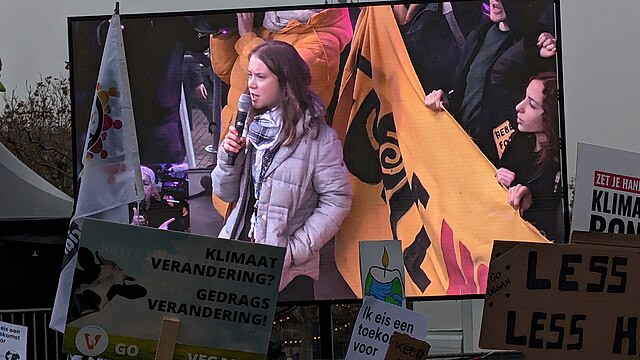Israel's government on Sunday ordered its military to intercept a Gaza-bound aid vessel carrying climate activist Greta Thunberg and 11 others, warning it would take "all necessary measures" to prevent the ship from reaching Palestinian waters. The move has drawn international scrutiny and accusations of disproportionate force as humanitarian conditions in Gaza worsen under a protracted blockade.
"I have instructed the IDF to act so that the hate flotilla does not reach the shores of Gaza-and to take all necessary measures to that end," Israeli Defense Minister Israel Katz said in a statement. Addressing Thunberg directly, Katz added, "To the antisemitic Greta [Thunberg] and her friends who echo Hamas propaganda, I say clearly: You'd better turn back-because you will not reach Gaza."
The Madleen, a vessel operated by the Freedom Flotilla Coalition (FFC), departed Catania, Sicily, on June 1 with the stated goal of delivering a symbolic amount of aid to Gaza and drawing attention to the humanitarian crisis in the territory. In addition to Thunberg, passengers include actor Liam Cunningham and Rima Hassan, a French member of the European Parliament of Palestinian descent who has been barred from entering Israel.
"We will not be intimidated," the FFC said in a statement responding to Katz. "The statement by Israel's defense minister is yet another example of Israel threatening the unlawful use of force against civilians-and attempting to justify that violence with smears."
By Sunday evening, the Madleen was approximately 160 nautical miles from Gaza. Activists reported potential interference with the ship's communication systems. Brazilian activist Thiago ávila posted a video claiming their tracking devices were being jammed.
Thunberg said before departure, "No matter how dangerous this mission is, it's not even near as dangerous as the silence of the entire world in the face of the livestreamed genocide."
The Israeli blockade on Gaza, initially imposed in 2007, intensified following the October 7, 2023 Hamas-led assault that killed around 1,200 people and resulted in the abduction of 251 hostages. According to Israeli authorities, 55 hostages remain in Gaza, more than half believed to be dead.
Since then, Israeli military operations have killed over 54,000 Palestinians, according to the Gaza Health Ministry. The ministry does not distinguish between combatants and civilians but has said most casualties are women and children. UN officials describe Gaza as "the hungriest place on Earth," with 90% of the population displaced and dependent on aid.
In mid-May, Israel began easing the blockade slightly, allowing limited humanitarian access through a U.S.-backed distribution system guarded by private contractors and Israeli forces. However, conditions remain dire. On Sunday, four Palestinians were killed near a food distribution site, bringing the number of deaths since the Gaza Humanitarian Foundation (GHF) began managing aid on May 27 to 110, with more than 1,000 injured, according to Gaza health officials.
Israel has defended the naval blockade as a national security imperative to prevent arms shipments to Hamas. "The State of Israel will not allow anyone to break the naval blockade on Gaza, whose primary purpose is to prevent the transfer of weapons to Hamas," Katz said Sunday.
A prior attempt by the FFC to deliver aid by sea ended in failure after one of its ships, the Conscience, was damaged in international waters off Malta by drone strikes. The group blamed Israel for the incident. Despite the risks, the FFC reiterated its call for world governments to demand Israel stand down: "Israel has no right to obstruct our effort to reach Gaza."






